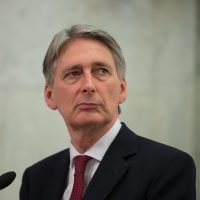
Ernst & Young
Peter Spencer, chief economic adviser at the EY ITEM Club, said that the Office for Budget Responsibility (OBR) is likely to revise upwards its forecast for 2017 GDP growth from 1.4% to as much as 1.7%.
He said that the OBR now has more information on which to base its long-term forecasts now that the Government has made clear its Brexit plans, but said the OBR will likely “resist the temptation” to make major changes to its forecasts.
Deloitte
Ian Stewart, chief economist at Deloitte, said that positive growth figures and better-than-expected tax revenues have boosted the Treasury, but warned the “long grind of public sector austerity has much further to run”.
Bill Dodwell, head of tax policy at Deloitte, said he hoped that there would be limited changes to tax in the Budget, pointing out that we are in the middle of “very substantial changes” to the tax system.
RSM
RSM said that it is likely that we will see announcements on the filing and payment process for stamp duty, now that the HMRC consultation has finished. This could include reductions in the length of the filing and payment windows.
Kreeston Reeves
Bryan Elkins, partner at Kreeston Reeves, suggested that the Chancellor may be tempted to cut corporation tax even further, perhaps as low as 12.5%.
He added: “Despite a shift away from focusing on home ownership towards making rental more attractive, it still seems likely that there will be further help to encourage those who do want to own a property, not just borrow one. Developers are clearly in the firing line and may find some uncomfortable financial pressures applied to force the pace of new building.”
Menzies
Rebecca Wilkinson, corporate tax senior adviser at Menzies, said that if the Government wants to follow through on its commitment to SME housebuilders, as outlined in the housing white paper, it needs to make them exempt from the 3% stamp duty surcharge.
Stamp duty should also be rethought at the top end of the market. Wilkinson said: “By reducing the SDLT charge on properties worth more than £1m the top end of the housing market would free up, meaning that families can move up the property ladder and increase the availability of homes at the more affordable end of the market.”
Finally, she suggested that the changes to buy-to-let tax relief would damage the prospects of property investors, who are still needed by the property market, concluding: “The government should address these issues by abolishing the proposed interest restriction rules, or at the very least modifying them so that no landlord would pay tax on loss making properties.”














